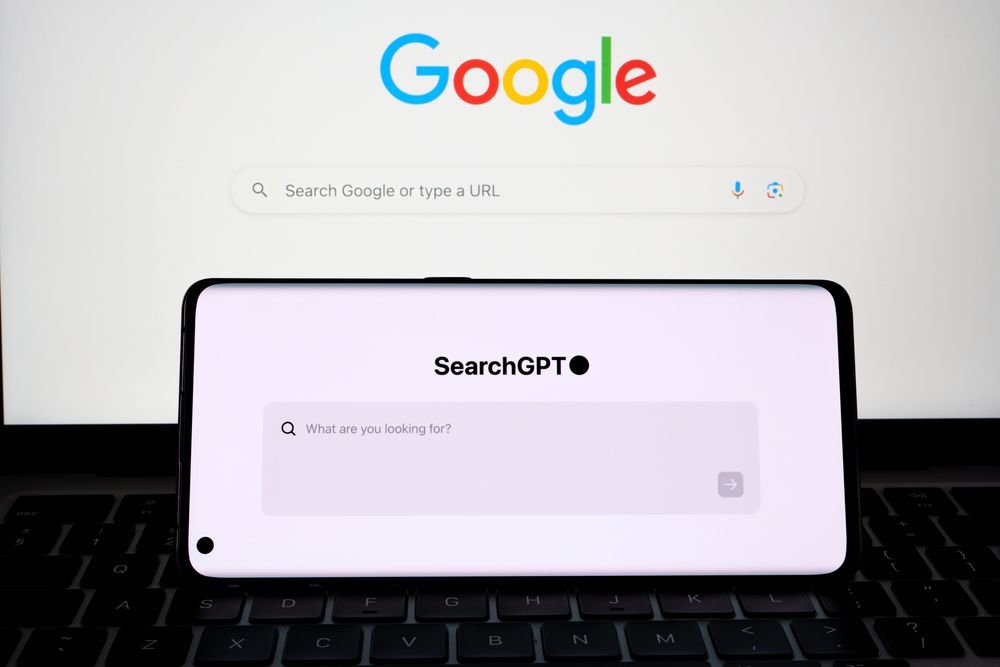
Will SearchGPT replace Google? It’s a question on everyone’s mind, from tech experts to everyday users. This potential shift in online search has fueled much speculation. But is it realistic? Let’s explore this tech showdown and discern fact from fiction.
OpenAI’s launch of SearchGPT marks a significant moment in information discovery. This move has many pondering the future of search engines.
Google’s Reign: The Current Search King
Google processes an astounding 3.5 billion searches daily, serving as the primary tool for finding information, from local businesses to academic research. Google’s power stems not just from these numbers, but from its extensive infrastructure and advanced algorithms developed over decades.
This makes Google a formidable competitor in the search engine market.
SearchGPT: A New Challenger Approaches
SearchGPT presents an alternative approach. Instead of a list of links, it leverages AI to provide direct answers with cited sources, delivering information quickly and accurately using conversational search capabilities.
I’ve explored SearchGPT and its Browse with Bing feature in GPT-4. It’s intriguing, but there are areas that need to be improved upon.
Will SearchGPT Replace Google? A Head-to-Head Comparison
| Feature | SearchGPT | |
|---|---|---|
| Speed | Very fast | Fast, but can be slower for complex queries |
| Accuracy | Generally very accurate | Prone to occasional “hallucinations” (source) |
| Search Style | Traditional list of links | Conversational, direct answers |
| Local Search | Excellent (long history) | Still developing |
| Real-Time Information | Up-to-the-minute data | Can be outdated |
SearchGPT vs Google: Strengths & Weaknesses
SearchGPT’s Strengths
SearchGPT excels at addressing complex queries. For instance, a search about climate change yields a concise summary from various sources with provided links. Traditional media like Associated Press and digital publishers like Vox Media train these AI language models with a wide range of up-to-date content.
SearchGPT’s Weaknesses
SearchGPT’s responses to simple queries, like “coffee shops near me,” can be inaccurate or outdated. This type of search relies on access to real-time databases. Generating AI-driven search results is ten times more expensive than traditional methods (source), raising questions about financial sustainability.
Google’s Strengths
Google’s strengths lie in its speed, comprehensiveness, and user-friendly interface. Whether seeking today’s weather or information on quantum physics, Google delivers results quickly. This positive user experience fosters user loyalty as SearchGPT attempts to attract users.
Google dominates organic search, and user experience plays a vital role.
Google’s Weaknesses
Google’s dependence on advertising can clutter search results, hindering intuitive navigation. Ads now dominate Google’s SERPS (Search Engine Results Pages), potentially compromising the initial intent of the platform’s user experience. The inclusion of ads might make the interface more complicated.
The Future of Search: Evolution, Not Replacement
While some foresee direct competition between SearchGPT and Google, evolution seems more probable. Instead of replacement, these search capabilities could merge. Google consistently innovates, integrating AI features like AI Overviews and demonstrating AI-generated results at Google I/O 2023. It wouldn’t be unlike Google to incorporate some SearchGPT aspects.
OpenAI CEO Sam Altman has said that OpenAI isn’t focused on taking down Google and taking all their search queries. Rather, they aim to provide a more refined, open artificial intelligence tool that gives its beta version users more refined search options. SearchGPT, like Perplexity AI and other AI models, is forming partnerships with news organizations like Le Monde, Axel Springer, and the Financial Times to share AI capabilities and generated information. This resembles current search engine practices, potentially shaping the future search landscape. Google already incorporates a great amount of Google AI within their products and Google processes.
Google’s speed, paired with human supervision to help generate higher quality responses will further enhance SearchGPT in terms of quality responses, but it may lag slightly behind. Google already integrated tools into existing processes that took over two decades to create, therefore giving them a massive advantage and edge when competing with AI models and chatgpt searches.
Will SearchGPT replace Google? It’s unlikely in the foreseeable future. This situation mirrors the early days of online search. Will SearchGPT completely displace Google Search and other traditional search engines? Probably not. Google, as a major force in search engine development, readily embraces innovation and integration. As a digital marketing agency in Philadelphia we’re embracing the new technology and expanding our service offerings.
Based on personal experience, it seems unlikely SearchGPT will force Google out of business. Instead, it may influence broader change across digital markets and the digital marketing space, potentially even impacting social media. Only time will tell. The question remains will SearchGPT completely overthrow Google’s dominance?












